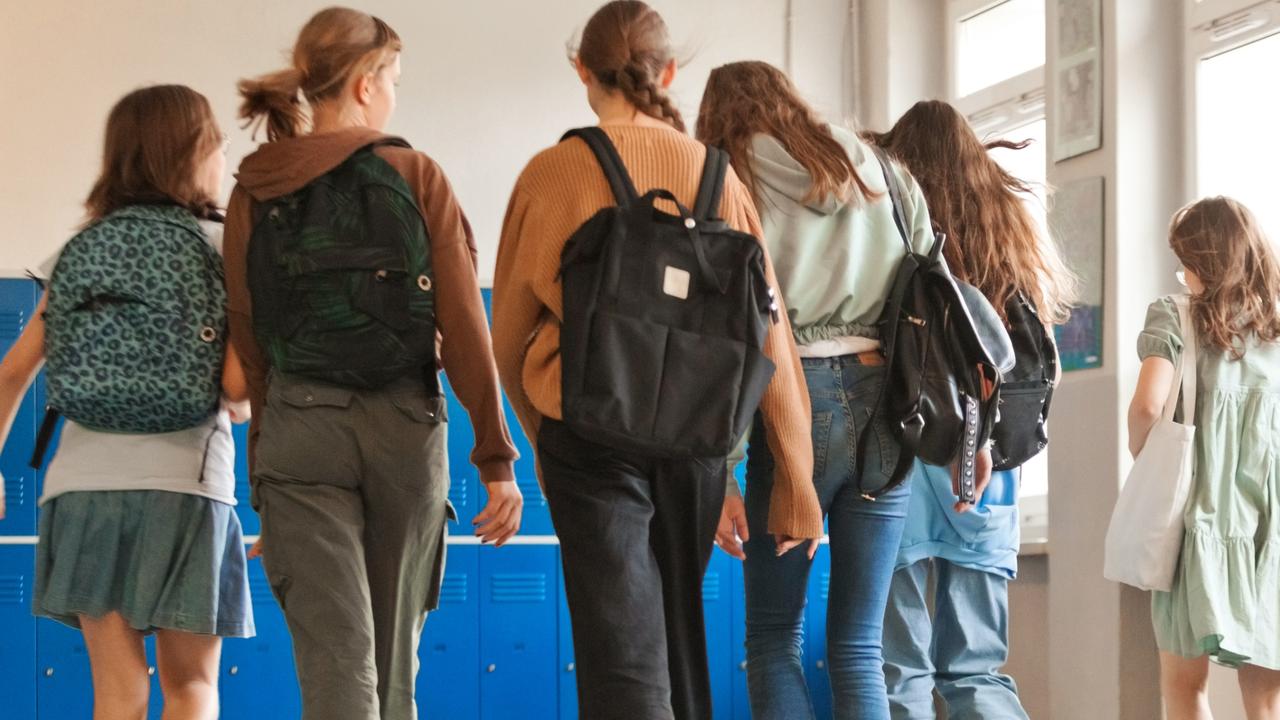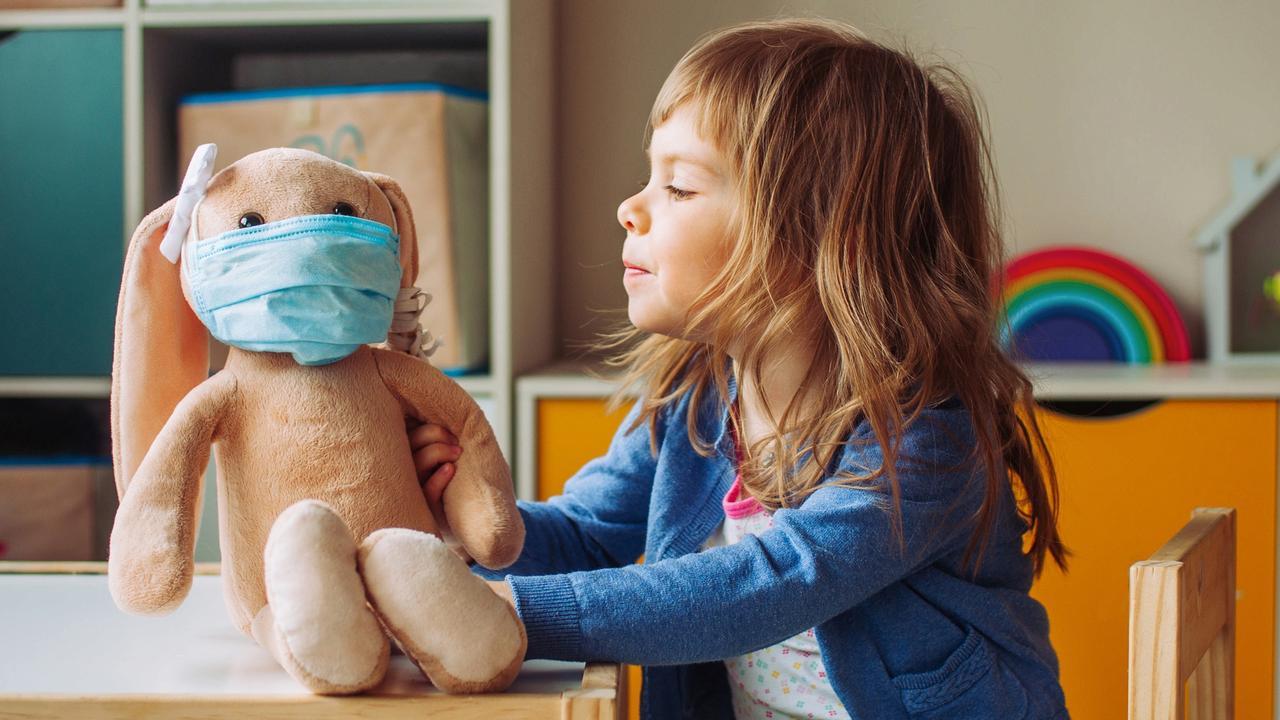What public students need to do to compete against private schools in rowing
Victorian public schools that want to compete against cashed-up private colleges in rowing are holding sausage sizzles to get the equipment they need.
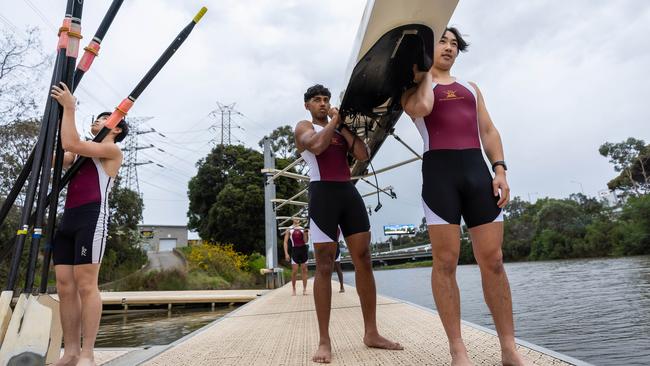
Education
Don't miss out on the headlines from Education. Followed categories will be added to My News.
While Victoria’s elite private schools promote multimillion-dollar rowing programs, one state high school has been forced to crowdfund to raise $7000 to replace ageing equipment.
Melbourne High School has started a GoFundMe petition that has raised $3312 towards the cost of two new cox boxes and four pairs of sculling oars, which cost $7040 in total.
So far there have been 67 donations, mostly around $20 to $100 each to support the program, which is now in its 110th year.
Some Victorian private schools have raised 100 times as much for their sporting programs in just 24 hours.
The Melbourne High petition, started by assistant director of rowing Martyn O’Leary, said the school “plays a role in keeping the MHS Rowing program up and running by making it as affordable as possible for the boys”.
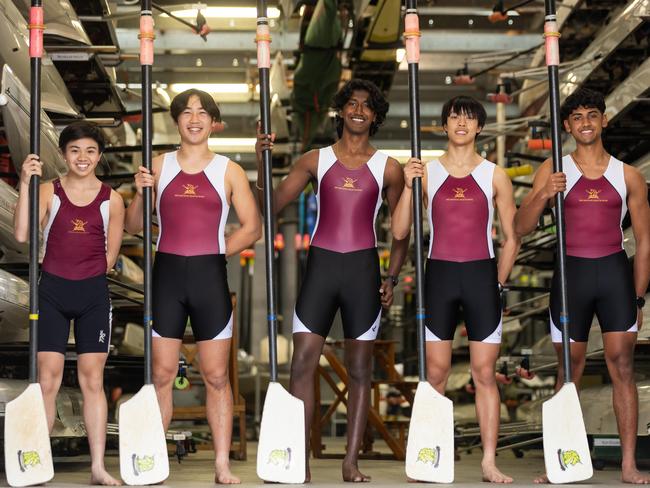
“We also acknowledge the fantastic work of the parent fraternity in their fundraising – but we do need a bit of extra help. We need your help to raise funds for new equipment to ensure our boys remain competitive,” the petition said.
“Your contribution will directly enhance the safety and competitiveness of our team.”
The school regularly holds fundraisers such as Bunnings sausage sizzles so its students can participate in a prestigious sport where new boats cost as much as $120,000.
Melbourne High, a selective boys’ school for years 9-12, is one of a small number of state schools to offer rowing, including Melbourne Girls’ College in Richmond and Ballarat High School.
Ballarat High is also raising money for its rowing program, so far attracting $182.98 out of its $30,000 goal on the Australian Sports Foundation website.
Melbourne High principal Dr Tony Mordini said his school had “a very committed group of families that make contributions towards it (rowing) because it’s not part of the standard curriculum”.
Dr Mordini said sport was an important part of the school’s curriculum.
“I firmly believe that sport and being healthy is a really important part of a well-rounded education. I encourage sport and put resources into it,” he said.
The gap between public and private schooling is particularly stark when it comes to extra-curricular sports such as rowing.
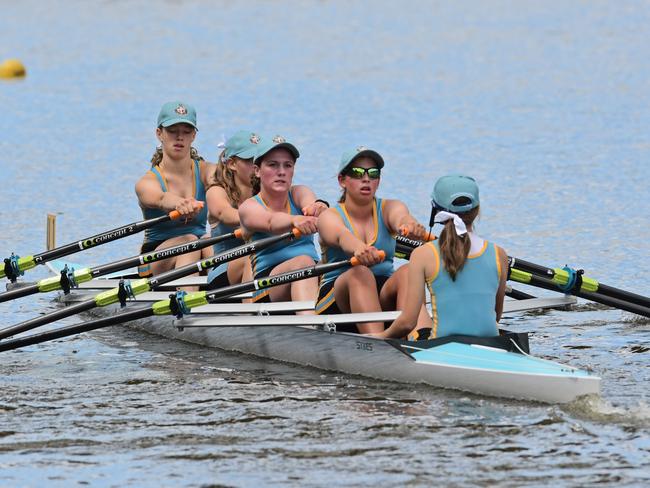
Many private schools such as Carey Grammar and Melbourne Grammar have their own boat sheds on the Yarra in the city.
Melbourne Grammar pays token rent of just $1 a year to the City of Melbourne for its position just near Alexandra Gardens.
It’s estimated that such schools spend more than $1m a year on their rowing programs.
This has led to a number of state and private schools using the Australian Sports Foundation website as a fundraising platform which has tax-deductible donations.
Other schools using the site include Lauriston which has raised $57,000 out of $90,000 for new equipment, Melbourne Grammar, which has raised $40,000 and Geelong Grammar, which raised $30,000, including a one-off donation of $13,000.
It comes as St Catherine’s School recently raised $400,000 in 24 hours towards their new sports centre. Rowing parents at the school were particularly generous, including the Demetriou family who gave $12,000.
The high cost of rowing is part of the reason a number of schools have stopped offering the sport or have cut back their program. Haileybury College has said it will no longer offer rowing after 2025.
The Herald Sun revealed last year a Loreto Toorak coach, ex-Olympian James Rook, was investigated after reports of inappropriate behaviour.


